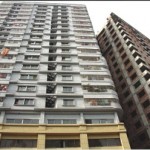 Apartment sales have soared around 15 percent in the first month of the new financial year, as the government announced that buyer’s source of income would not be questioned under black money whitening scope.
Apartment sales have soared around 15 percent in the first month of the new financial year, as the government announced that buyer’s source of income would not be questioned under black money whitening scope.
Housing sector people say the scenario was reverse during January-March of 2009. The realtors blamed the ongoing global recession fallout for about 30 percent drop in sales at that time.
“The sector has overcome that bad time in July and now it enjoys around 15 percent growth in terms of sales,” said Tanveerul Haque Probal, president of Real Estate and Housing Association of Bangladesh (REHAB). “The scope of money whitening is one of the reasons.”
Had the National Board of Revenue (NBR) already issued the SRO ((statutory regulatory order), such responses would have been much more.
The 2009-10 budget has allowed whitening black money through investing in more than 64 sectors, including housing.
Any person can legalise his or her black money by purchasing a single flat after paying a certain amount of tax fixed for per square feet. However this tax varies in line with the apartment location.
In a recent meeting with the finance minister, the industry insiders pointed to the sales growth.
“Definitely, it happens because of the money whitening scope,” said Mohammad Abdul Awal, managing director of the Structural Engineers Ltd (SEL), a leading developer.
SEL has ongoing projects at Gulshan, Mohammadpur, Uttara, Mirpur, Indira Road, Malibagh and Shyamoli in Dhaka. Its project outside the capital is in Comilla. Earlier, apartment sales in city’s posh areas dropped significantly in the first three months of the year.
Awal, a former president of REHAB, said customers queries are now coming from all parts of the city. “The queries are aplenty,” the SEL boss said.
An anti-graft drive during the caretaker government rule, which bound the intending buyers of flats to show their sources of incomes, pushed the sales down to over 40 percent.
Sayed Ismail Ali, managing director of Multiplan Development Ltd, who runs 13 housing projects in Dhaka, said customers’ interests in buying apartments have doubled this month.
As many as 500 developers construct around 7000 flats every year on an average. The usual monthly sales hover around 600, but the March sales came down to 180. In the changed scenario, demand for apartments in July jumped to more than 800, according to the sectoral trade body.
Although sales go up, apartment price is yet to come down, rather in some cases it soared. The present prices range from Tk 8,000 to Tk 15,000 per square foot in posh areas, while the rates are between Tk 4,000 and Tk 5,000 in other areas.
The housing sector has contributed nearly 7.35 per cent to the country’s gross domestic product (GDP) in the financial year 2009. Some 2.0 million skilled and non-skilled persons are directly and indirectly involved in the sector.




















